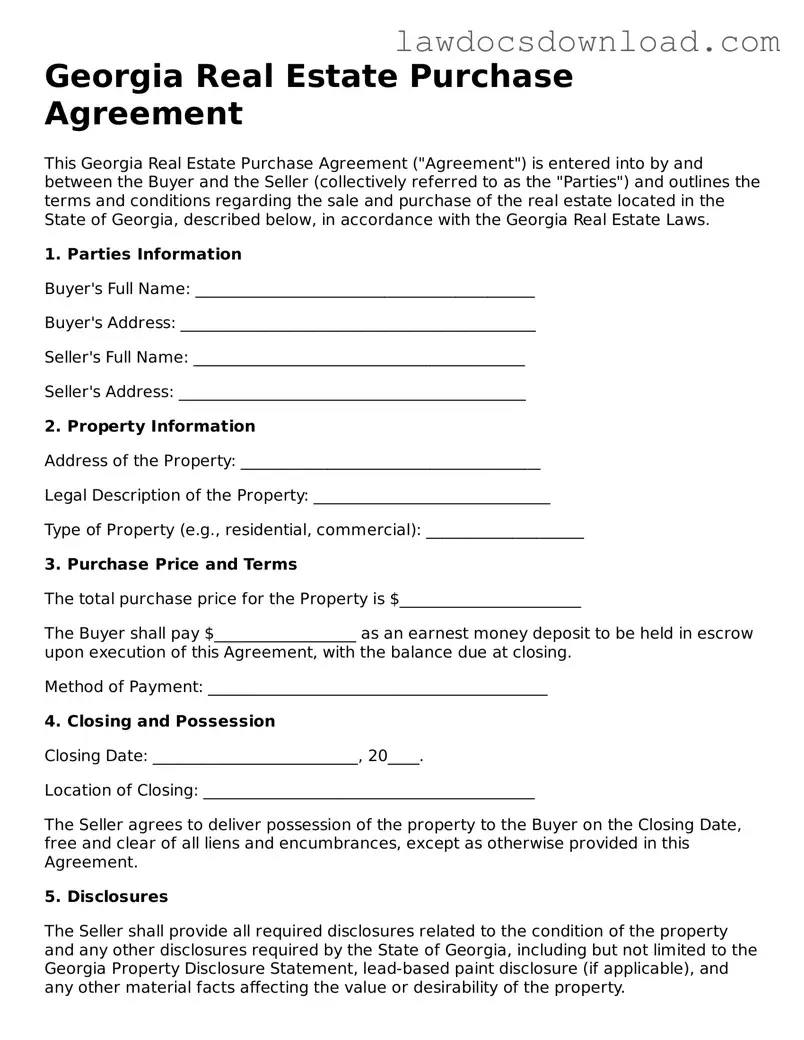Legal Georgia Real Estate Purchase Agreement Form
The Georgia Real Estate Purchase Agreement form is a legally binding document used during the buying and selling of property within the state of Georgia. This form outlines the terms and conditions agreed upon by both the buyer and the seller, ensuring clarity and mutual understanding throughout the transaction process. It is essential for parties involved to fully comprehend the details outlined in this agreement to facilitate a smooth property transfer.
Launch Real Estate Purchase Agreement Editor Here

Legal Georgia Real Estate Purchase Agreement Form
Launch Real Estate Purchase Agreement Editor Here

Launch Real Estate Purchase Agreement Editor Here
or
Free Real Estate Purchase Agreement
Get this form done in minutes
Complete your Real Estate Purchase Agreement online and download the final PDF.